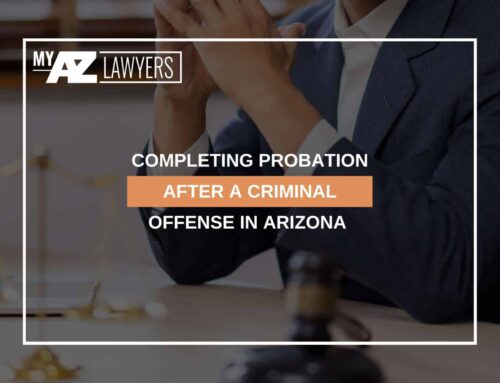Table Of Contents
Criminal Charges For Dine & Dashing In Phoenix, Arizona
There is no doubt that the cost of going out to eat at a restaurant has increased rapidly in recent years, and it also seems like the quality and level of service has decreased. At the same time, customers are being asked to tip higher percentages and for services that traditionally wouldn’t call for a tip. Many deal with this frustrating experience by reducing how often they go out to eat. Others use a more devious method- dine and dashing- to avoid paying for their food. Some may only see dine and dashing as a harmless prank, but restaurant owners and employees would argue otherwise.
If a dine and dash “prankster” is caught, they can be charged with a criminal offense in Phoenix, Arizona. The consequences of a dine and dash won’t be a laughing matter if it affects the offender’s employment, education, and more. Are you or someone you love facing criminal charges after participating in a dine and dash in Phoenix, Arizona? Our criminal defense team can provide skilled guidance based on your specific circumstances. Call to discuss your situation in detail with a knowledgeable Maricopa County criminal defense attorney- call 480-470-1504 for your free consultation today.

Arizona Revised Statutes Section 13-1802: Theft
Dine and dashing may be viewed as a joke by some, but it meets the definition of theft under Arizona law. Theft is defined in Arizona by A.R.S. § 13-1802. The wording of this statute allows for a wide variety of conduct to be criminally charged as theft, including dine and dashing. The level of the offense will depend on the value of the goods or services that were stolen. They are as follows:
- $25,000 or more: class 2 felony
- $4,000-$25,000: class 3 felony
- $3,000-$4,000: class 4 felony
- $2,000-$3,000: class 5 felony
- $1,000-$2,000: class 6 felony
- Less than $1,000: class 1 misdemeanor
Unless the defendant dine and dashed an extremely large meal at an expensive restaurant, a dine and dash offense would most likely be a class 1 misdemeanor in Arizona. There are also special classifications for the theft of specific goods like firearms, vehicle engines and transmissions, and animals taken for the purpose of animal fighting, but these would not be relevant in the context of a dine and dash.
Class 1 Misdemeanor Penalties
Because the value of a dine and dash will likely be less than $1,000, the offense is considered a class 1 misdemeanor in Arizona. The good news for a defendant here is that a misdemeanor is not as serious as an offense as a felony. Convicted felons can lose constitutional rights like voting, running in elections, and owning firearms. These penalties don’t apply to convictions at the misdemeanor level. Convicted felons can also have a harder time finding housing, employment, and passing background checks in general after their release from incarceration. A misdemeanor isn’t a great thing to have on one’s record but doesn’t carry the same weight as a felony conviction.
Arizona’s law for misdemeanor sentencing is A.R.S. § 13-707. A class 3 misdemeanor, the lowest level misdemeanor in Arizona, is punishable by a maximum of 30 days behind bars. For a class 2 misdemeanor, the maximum sentence is 4 months. The maximum sentence for a class 1 misdemeanor, which a dine and dash would most likely qualify as, is 6 months. A defendant convicted of a class 1 misdemeanor can be fined up to $1,000 and ordered to complete probation. However, a defendant could be sentenced to a lower sentence or no jail time altogether if they present a strong defense. Looking for strategies on convincing the court to issue a sentence on the low end of the penalties range? Contact our Maricopa County criminal defense firm for your free consultation at 480-470-1504.
What Can a Restaurant Do After a Dine & Dash?
Restaurants are already known to be difficult businesses to operate without considering factors like so-called customers who skip out on their checks. If the business intends on pursuing a dine and dasher, they will probably start by reporting the incident to the police. Many restaurant have security camera footage, which can be reviewed to identify the perpetrator. There may be other identifying data points available, such as the dine and dasher’s phone number or license plate number, that can be used to track them down. Some restaurants will post footage of the dine and dashers on their social media to shame the offender and see if any of their followers recognize them.
Dine and dashing hurts restaurants, but it also hurts the servers assigned to wait on that table. Many servers at sit-down restaurants only earn about $2 per hour, an exception to the minimum wage meant to reflect a server’s income from tips. Employers may not deduct the funds from a dine and dash theft from a server’s wages or tips. Servers often have to “tip out” other employees in a restaurant, such as the bartender and busser, for their help preparing, serving, and clearing meals. The amount a server has to tip out is based on how much food they sold that day, rather than how much tip income they receive. For example, let’s say a server tips out the food runner 3% of their sales and the hostess 1% of their sales. If a customer were to dine and dash on a $200 bill, the server would have to tip out their coworkers $8 for that table alone despite not receiving a tip and only making $2 per hour. So, a patron who decides to dine and dash a restaurant can actually end up costing their server money when they are supposed to be earning.
If you’ve noticed that more restaurants are using tableside payment systems, dine and dashing is a reason why. Leaving a customer with the check and trusting that the customer will leave cash or their card requires trust that can be broken after a dine and dash incident. When the server has the card reader machine with them at the table, it makes it more difficult for dine and dashers to leave without paying. Some restaurants have also implemented counter service, where the customer pays for their food before receiving it, in response to dine and dashers. Others require diners to start a tab for their meal to ensure that the restaurant receives payment. You may also see restaurants with only one door designated for customer use, which helps cut down on dine and dashing by making it more obvious when a customer is trying to sneak out.
Facing Theft Charges Or Other Criminal Offenses In Phoenix, Arizona? Schedule Your Free Consultation with Our Skilled Defense Team.
Theft charges are no joke in Arizona, and can come with a lifetime of consequences if the defendant doesn’t mount a strong defense case against the prosecution. There may be evidence that exonerates you that an attorney can find and leverage for reduced charges or case dismissal. An attorney can also help you negotiate a favorable plea deal to mitigate how much damage a conviction has on your life. It will all depend on the specific facts in your situation. To go over them with a skilled Arizona criminal defense attorney, feel free to make a consultation at 480-470-1504. Don’t hesitate to contact us today!

MY AZ LAWYERS
Email: [email protected]
Website: www.myazlawyers.com
Mesa Location
1731 West Baseline Rd., Suite #100
Mesa, AZ 85202
Office: 480-448-9800
Phoenix Location
343 West Roosevelt, Suite #100
Phoenix, AZ 85003
Office: 602-609-7000
Glendale Location
20325 N 51st Avenue Suite #134, Building 5
Glendale, AZ 85308
Office: 602-509-0955
Tucson Location
2 East Congress St., Suite #900-6A
Tucson, AZ 85701
Office: 520-441-1450
Avondale Location
12725 W. Indian School Rd., Ste E, #101
Avondale, AZ 85392
Office: 623-469-6603











